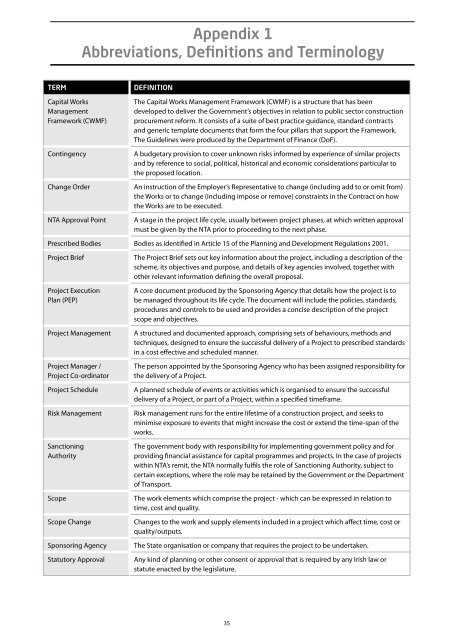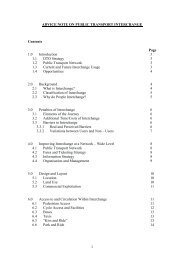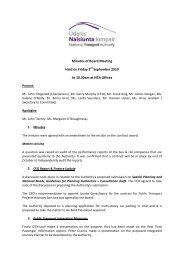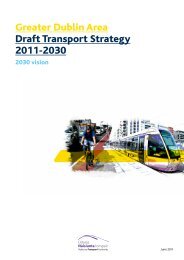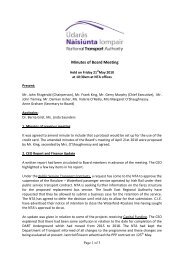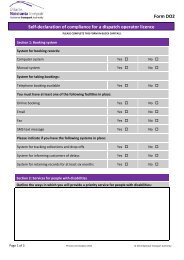Project Management Guidelines - National Transport Authority
Project Management Guidelines - National Transport Authority
Project Management Guidelines - National Transport Authority
- No tags were found...
You also want an ePaper? Increase the reach of your titles
YUMPU automatically turns print PDFs into web optimized ePapers that Google loves.
Appendix 1Abbreviations, Definitions and TerminologyTermCapital Works<strong>Management</strong>Framework (CWMF)ContingencyChange OrderNTA Approval PointDefinitionThe Capital Works <strong>Management</strong> Framework (CWMF) is a structure that has beendeveloped to deliver the Government’s objectives in relation to public sector constructionprocurement reform. It consists of a suite of best practice guidance, standard contractsand generic template documents that form the four pillars that support the Framework.The <strong>Guidelines</strong> were produced by the Department of Finance (DoF).A budgetary provision to cover unknown risks informed by experience of similar projectsand by reference to social, political, historical and economic considerations particular tothe proposed location.An instruction of the Employer’s Representative to change (including add to or omit from)the Works or to change (including impose or remove) constraints in the Contract on howthe Works are to be executed.A stage in the project life cycle, usually between project phases, at which written approvalmust be given by the NTA prior to proceeding to the next phase.Prescribed Bodies Bodies as identified in Article 15 of the Planning and Development Regulations 2001.<strong>Project</strong> Brief<strong>Project</strong> ExecutionPlan (PEP)<strong>Project</strong> <strong>Management</strong><strong>Project</strong> Manager /<strong>Project</strong> Co-ordinator<strong>Project</strong> ScheduleRisk <strong>Management</strong>Sanctioning<strong>Authority</strong>ScopeScope ChangeSponsoring AgencyStatutory ApprovalThe <strong>Project</strong> Brief sets out key information about the project, including a description of thescheme, its objectives and purpose, and details of key agencies involved, together withother relevant information defining the overall proposal.A core document produced by the Sponsoring Agency that details how the project is tobe managed throughout its life cycle. The document will include the policies, standards,procedures and controls to be used and provides a concise description of the projectscope and objectives.A structured and documented approach, comprising sets of behaviours, methods andtechniques, designed to ensure the successful delivery of a <strong>Project</strong> to prescribed standardsin a cost effective and scheduled manner.The person appointed by the Sponsoring Agency who has been assigned responsibility forthe delivery of a <strong>Project</strong>.A planned schedule of events or activities which is organised to ensure the successfuldelivery of a <strong>Project</strong>, or part of a <strong>Project</strong>, within a specified timeframe.Risk management runs for the entire lifetime of a construction project, and seeks tominimise exposure to events that might increase the cost or extend the time-span of theworks.The government body with responsibility for implementing government policy and forproviding financial assistance for capital programmes and projects. In the case of projectswithin NTA’s remit, the NTA normally fulfils the role of Sanctioning <strong>Authority</strong>, subject tocertain exceptions, where the role may be retained by the Government or the Departmentof <strong>Transport</strong>.The work elements which comprise the project - which can be expressed in relation totime, cost and quality.Changes to the work and supply elements included in a project which affect time, cost orquality/outputs.The State organisation or company that requires the project to be undertaken.Any kind of planning or other consent or approval that is required by any Irish law orstatute enacted by the legislature.35


